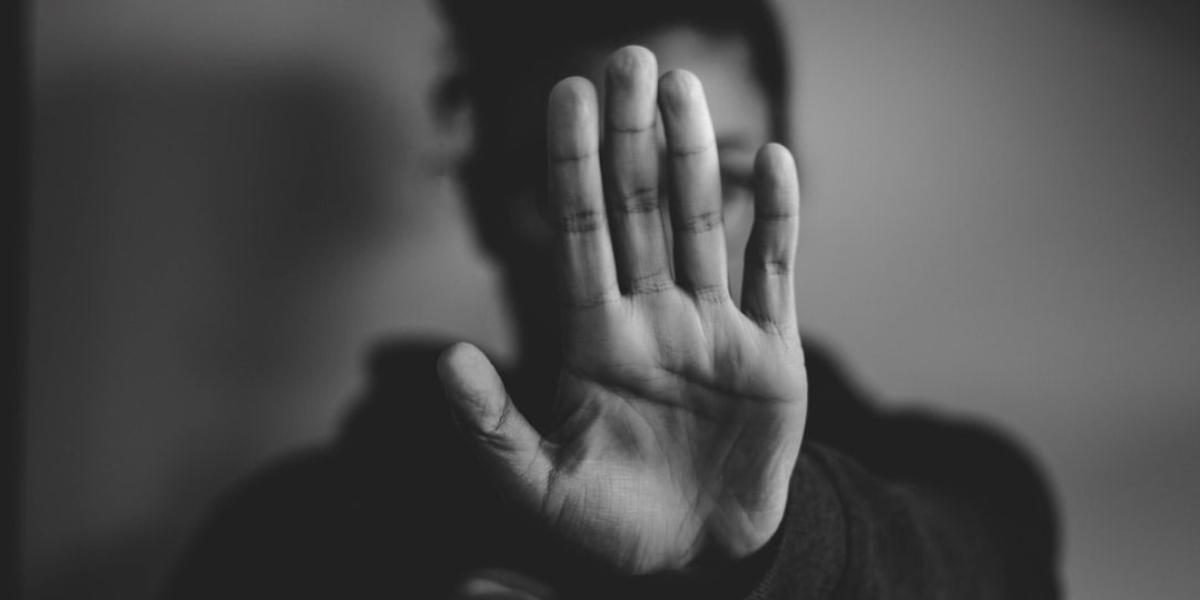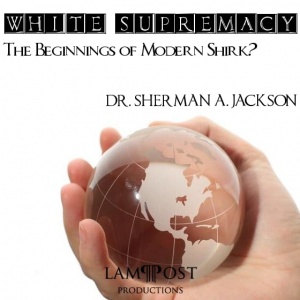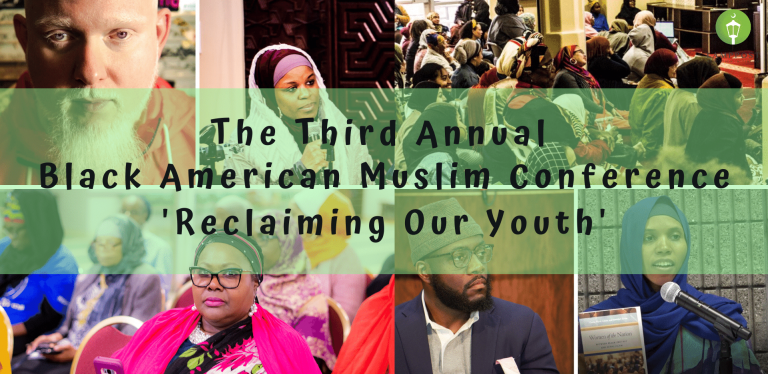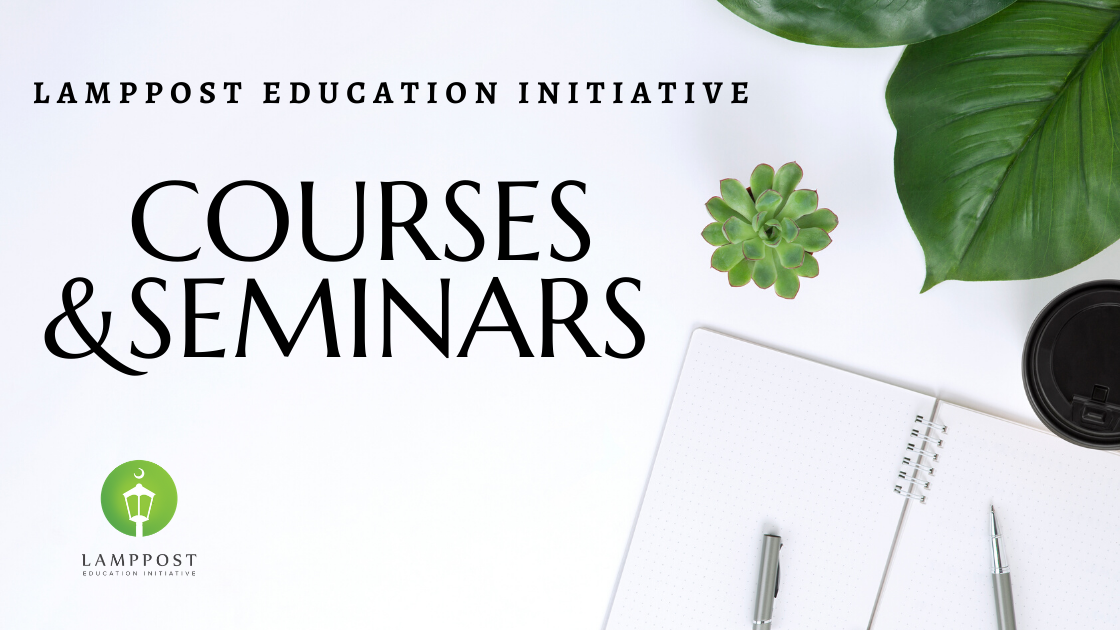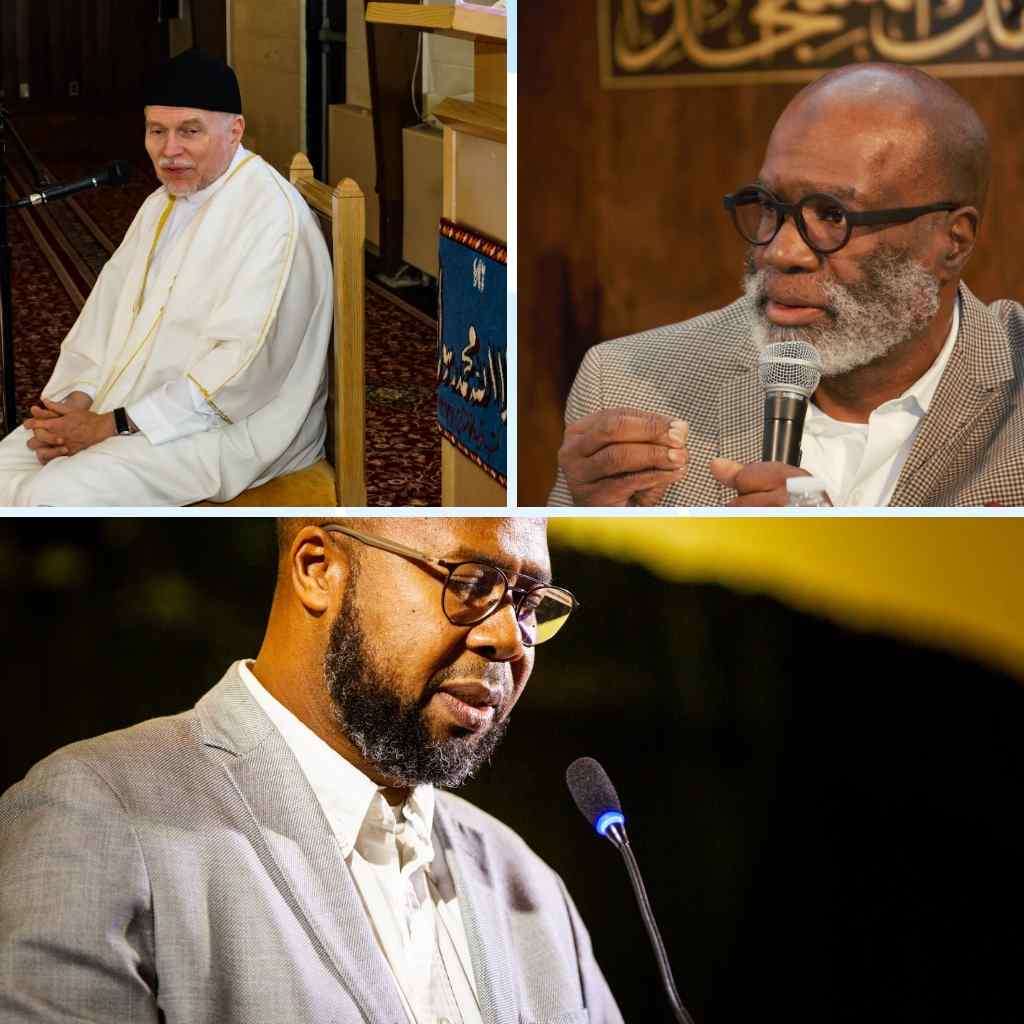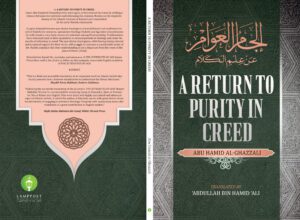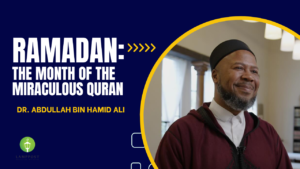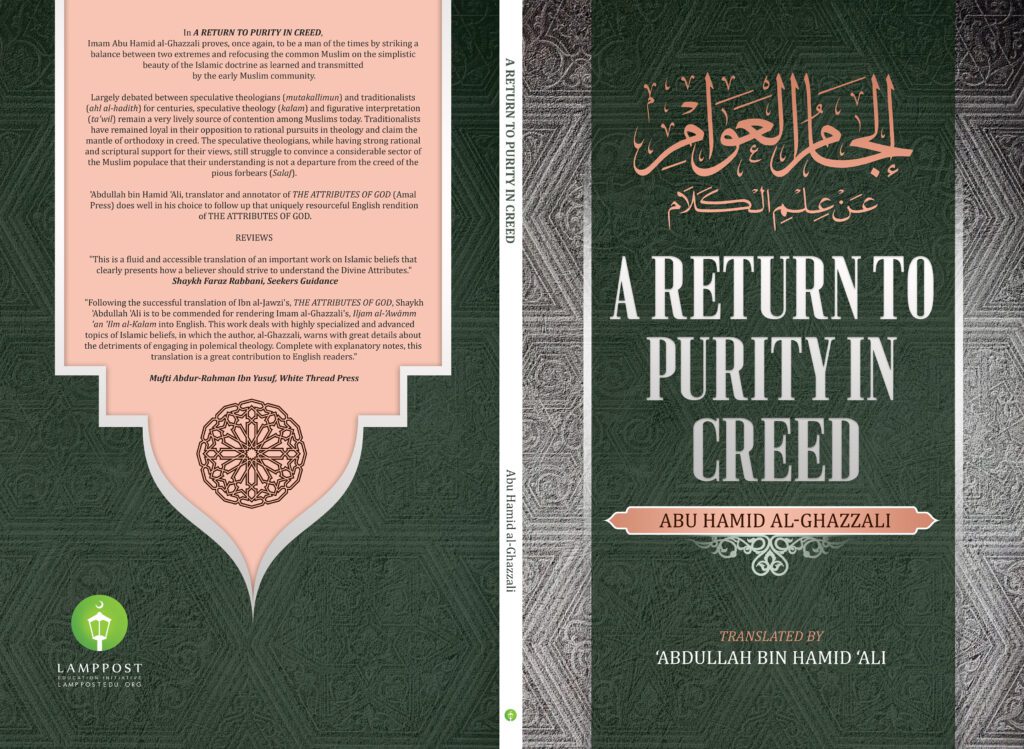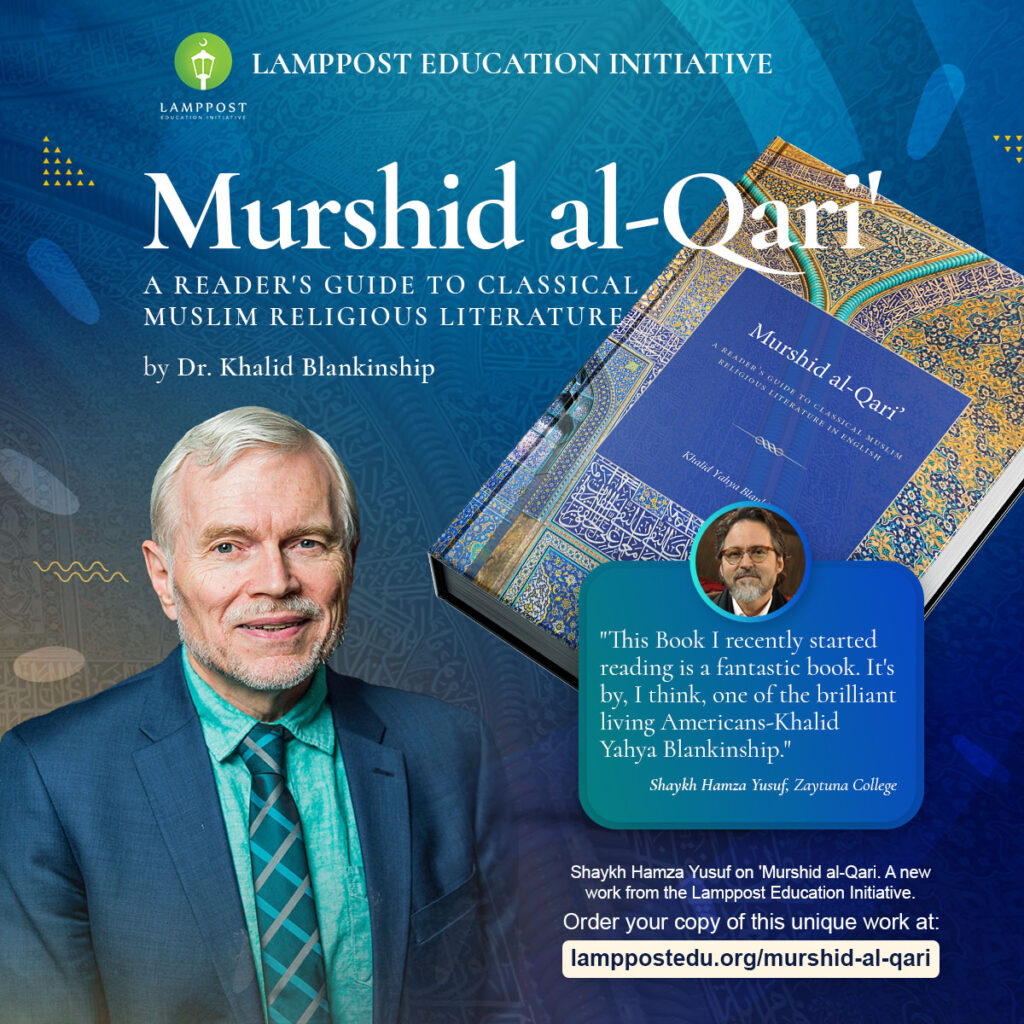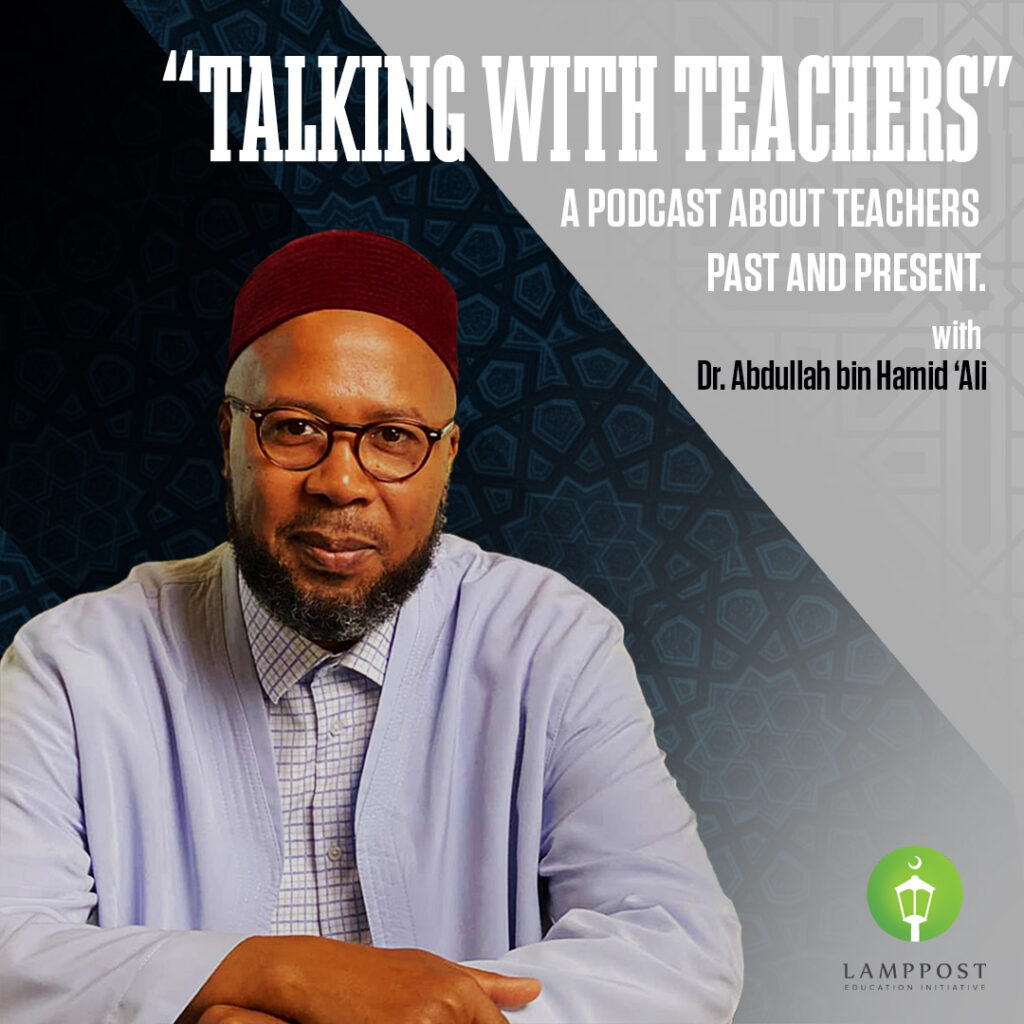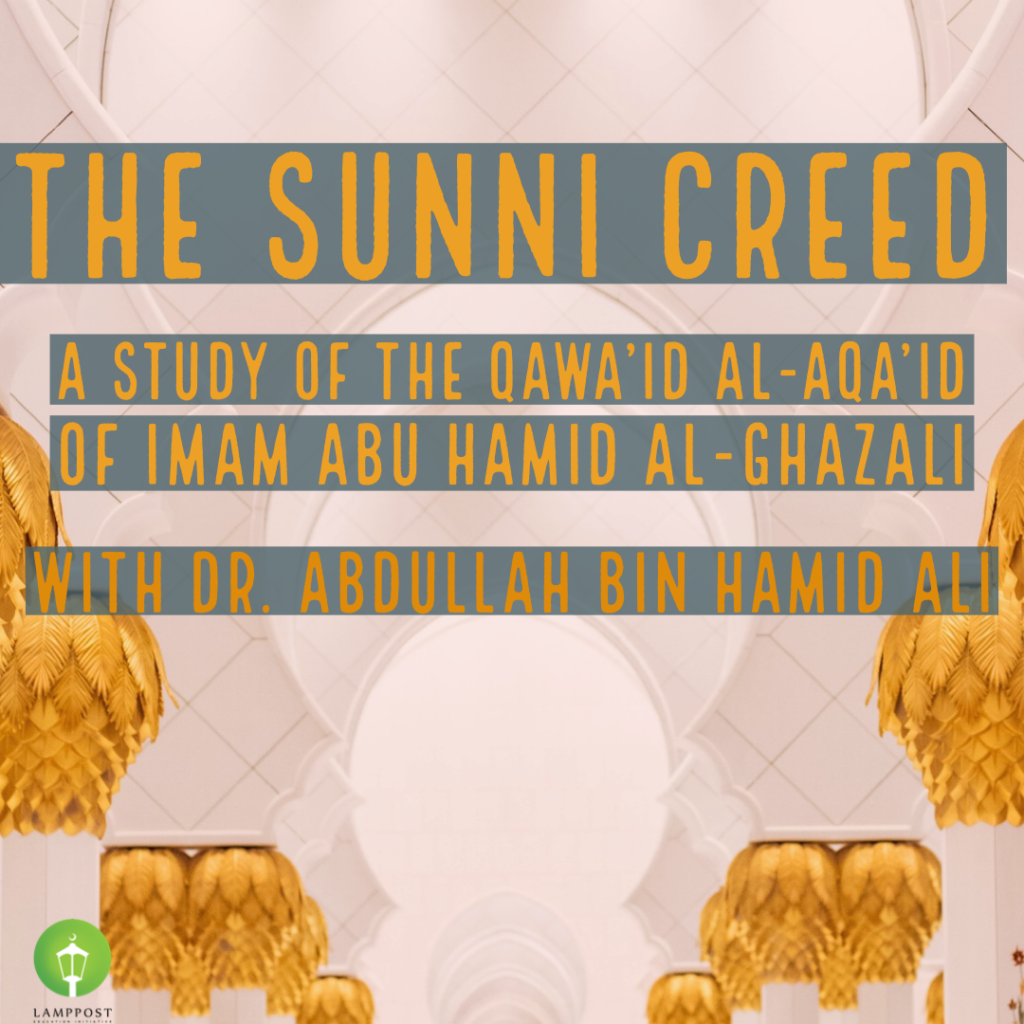"The power of this identity is that it provides a person a comprehensive form of belonging, and in a world that is characterized often by alienation and loneliness, this can be a powerful motivation to embrace one’s sexuality instead of languishing alone and bearing things out privately...."
Mobeen Vaid
In his recent lecture centered around the issues of homosexuality, Mobeen Vaid challenges commonly held modern perspectives about ‘Sexual Identity.’
How should Muslims view the concept of ‘identity’ within sexual identity? What is the framework that Islam provides for assessing gay behavior and ‘lifestyle’? How should Muslims engage the LGBTQ community concerning politics? The following is a video and a transcript of this lecture delivered at the East Plano Islamic Center in Plano, Texas.
As I begin, I am reminded of George Bernard Shaw’s observation: ‘Decency cannot be discussed without indecency’
Speaking about the world of sexuality can be a difficult topic to broach. Our natural constitution is such that we find ourselves uneasy when the topic comes up — we would rather relegate such matters to the private sphere, and in a house of worship, a masjid, the general discomfort can feel worse.
But these are difficult times we are in the midst of, and it is important for us to speak with a sense of plainness about sexual indecency and transgression, and where, as people with deep moral commitments in this space, we have found ourselves. Accordingly, my time today will begin with an examination of homosexuality as a concept, and then transition to the urgent question of politics and how we can embody moral citizenship.
Shaykh Yasir began today by outlining our sexual ethics, and drawing an important distinction between acts and desires. As he said, we are accountable for the acts we carry out, not the desires we internally experience (in fact, resisting the desires is a meritorious act!). But as we discuss homosexuality, the basic distinction at that level does not fully explain what homosexuality as a concept is, or how it functions today, or even why it is such a problem for us.
And here, I want to begin by talking about identities. It may come as a surprise here, but historically, the very concept of homosexuality and heterosexuality did not exist. In fact, these are both very recent terms. As Hanne Blank writes in her Surprisingly Short History of Heterosexuality, “It has, in point of actual fact, only been possible to be a heterosexual since 1869.” The process of developing this term is something Ned Katz calls “the invention of heterosexuality.” Of course, it goes without saying that men and women got married before 1869, had children, and that those children got married as well. It also goes without saying that some people had sex with people of the same sex. But if you asked any of them their “orientation” or asked if they were “gay” or “straight,” they would all be pretty confused by the question.
Available Now. Dr. Sherman Jackson’s fascinating look at White Supremacy. Click HERE for details
This is because past peoples never identified themselves on the basis of who they had sex with (or who they wanted to have sex with). In fact, the Islamic terms that we bring into this discussion do not map neatly onto the categories of homosexuality and heterosexuality, as the terms refer to actual acts — liwat, for instance, is a term that means sodomy, not homosexuality. Sihaq likewise is a sexual act between two women that involves vaginal rubbing. These are terms one will encounter in fiqh books. What you won’t find is a category of people who established an identity that was principally anchored in these sexual acts.
In the modern world, the sexual identity is cherished. It is the core of our being and who we are. But it is not just that. In the world of homosexuality, it tells those who adopt the identities of gay and lesbian how to live, how to think about various social and cultural causes, where to hang out and socialize, where their politics should be, and how they should think of other aspects of life, especially religion. The power of this identity is that it provides a person a comprehensive form of belonging, and in a world that is characterized often by alienation and loneliness, this can be a powerful motivation to embrace one’s sexuality instead of languishing alone and bearing things out privately.
“Coming out of the closet” is therefore more than just telling others who one is sexually attracted to. It is of course that, but it is also about telling others who one is as a person — their authentic selves, if you will.
When we speak to someone who has come to assume a “gay” identity and tell them that same-sex acts are haram, even while taking into account the distinction between acts and desires, what we are in effect telling them — and how they process this — is that the core of their very selves and who they are is false. Their identity, their community, their thinking about the world, how they dress, etc. is all tightly connected to their sexual desires and acts, as those serve as the seeds from which everything else within the identity ecosystem grows.
It is therefore absolutely essential for all of us to realize the power of this identity and to do what we can to get people who have same-sex desires to conceptualize themselves differently. We must oppose these identities and the language that is pivotal to the gay rights movement. We must show people that their actual identity is not drawn from who they want to have sex with or who they feel sexually attracted to, but in fact a function of how they relate to God. As Muslims, there is no identity that is more critical in our lives than being Muslim. Being Muslim gives us identity, it tells us how to view the world, and how to live morally. Our other identities as parents, children, siblings, students, teachers, etc. are conditioned and qualified by the identity of Islam, not the other way around.
Dr. Sherman Jackson expresses this priority beautifully in a piece he authored on politics when he said: “I want to declare that my ultimate commitment is to God and the religion of Islam, that Islam shall sit in judgment over my racial identity, not the other way around. Thus, even as I pursue the well-being of the broader Blackamerican collective, I shall commit to doing so on the basis of the values, virtues and priorities of Islam. My blackness is neither a morality nor a statement of ultimate truth nor a path to other-worldly salvation. Islam, on the other hand, is all of these for me.”
For people who have been conditioned and indoctrinated into viewing themselves as gay or lesbian, overcoming the identity hurdle can be extremely difficult. But once traversed, it can be extremely liberating. It can usher in a world of gratefulness and piety, a new life comported to Allah. This is why it is so important for us to resist the temptation of these identities. When I deal with young students on campus who confide in me that they struggle with same-sex attractions, I tell them we all struggle with sexual attractions that are calling us to sin.
It is therefore absolutely essential for all of us to realize the power of this identity and to do what we can to get people who have same-sex desires to conceptualize themselves differently.
We are all in the same boat. But what I also impress upon them is to never pidgeon-hole themselves into a gay identity, and to remind them that they are Muslim first and foremost. I also tell them about all the facets of life they can find fulfillment in and focus on perfecting — doing ihsan in work, towards ones parents and siblings, as students of knowledge learning the religion of Allah, or as worshipers in the masjid. They can commit to a life of charity and helping those in need, or they can find a passion elsewhere. Their entire lives are still open to them, and opportunities abound to find the mercy of Allah.
This also importantly means that we ourselves should stop using these terms and categories. When we speak of “gay Muslims” or “lesbian Muslims” we are in fact making this problem that much worse, because we are conflating too much — identities that incorporate all sorts of baggage and elevate ones sexual desires to the point where they represent the core of a persons self. We should instead speak in descriptive terms — such as noting that there are people who experience same-sex attractions. We are also beginning from the default premise that what we are dealing with is a distinct civic community, one that is essentially predicated on an identity rooted in sexual desire. In this, being gay or lesbian is the political, social, and moral equivalent of being black, Irish, or female.
And when those terms are the presumptive terms for any conversation, the outcome is largely predetermined, as they necessitate an altogether different discussion, one centered on the rights, privileges, and restrictions on a discernible civic community with shared aims, values, goals, and social experiences. In this sense, we are pigeon-holing ourselves from the outset of almost all discussions and conversations, and walking back from the civic into the moral can only occur in ways that appear, for all intents and purposes, irrational, bigoted, and inhumane.
So this is the first point I want to make clear, because if we don’t understand this, then frankly we don’t understand what homosexuality is or why it is even a problem today. The next thing I want to discuss is how we can be moral citizens in the world. And I say that knowing that most people believe the answer to this is obvious. Partly because we think we know what is right and wrong in every context and situation, or at least that we can trust our moral intuitions on the big questions.
When we speak of “gay Muslims” or “lesbian Muslims” we are in fact making this problem that much worse, because we are conflating too much — identities that incorporate all sorts of baggage and elevate ones sexual desires to the point where they represent the core of a persons self.
One of the things I like to ask students is how they would have acted if they lived, say, in 18th century America in the midst of chattel slavery, or perhaps in the early 1940s Germany. The idea being that if they were in a social situation where oppression and tyranny was taking place right under their noses, would they oppose it. For the most part, I find that the vast majority of students are very confident in their own ability to diagnose wrong-doing and stand against it irrespective of circumstance. Some will even tell me that they would die opposing tyranny and oppression in these places. Now these are admittedly instances of major civilizational oppression, but then again we have many societies in the past that partook in various moral wrongs, often at scale. Infanticide and child sacrifice for example was a common practice at certain times and places. The Quraysh themselves practiced this when it came to their daughters, and Allah condemned this practice — bi ayyi dhanbin qutilat (‘for what sin was she killed?’).
Other societies routinely practiced pedophilia, while others committed acts of genocide, worshiped idols, deified animals and wretched (or saintly) humans, and much more. In the midst of such a social setting, it is often difficult to think outside of whatever is dominant, to be independent of the social scene, if you will.
Now I ask the question: if we were living just twenty years ago (as many of us were), how would any of us think about homosexuality? Would we think about forming alliances with gay organizations, for example? Would we think it prudent to go so far as to advocate for them?
I suspect not. Now the common retort to this would be to say, oh we were all a bunch of bigots back then but are now enlightened. But then again, how can we be so sure that we aren’t being conditioned to see wrongdoing as innocuous and innocent? In all of our examples, the chronology of injustice was preceded by the absence of it. In fact, in just about all those cases, injustice came to be seen as the natural order of the world and past attitudes on those very things illegitimate. And it is this point I want to start with, because absent revelation, there would be lots of reason to see this question as irrelevant, because at that point we can deliberate but never really arrive at anything decisive.
But, thankfully, that is not the situation we are in, and Allah is quite clear in stating the sinfulness of same-sex acts and other sexual transgressions more broadly. The people of Lut were destroyed — mind you, there are but a few societies that we know of by name that were destroyed, and each was guilty of a transgression that is described in the most serious of terms. The people of Lut committed many crimes, yes. They were guilty of highway robbery, for example, and they were all around wicked. But their emblematic crime, the one that Allah mentions more than once, is the specific act of men having sex with men instead of women — innakum la-ta’tuna l’rijal shahwatan min dun l’nisa (‘you approach men lustfully instead of women’).
Beyond that, Allah tells us about the seriousness of sexual chastity. Even zina, to use modern terms, is a high crime in the Sharia. So sexual ethics are a matter of serious import. And this is something that has been recognized by all societies, as there has hardly been a society except that it instantiated strong moral norms governing licit and illicit sexual acts. When societies like ours soften on things viewed as morally reprehensible not long ago, praise them, destigmatize them and insist that any objection to them is just old world taboo, well then we are actually on very dangerous ground.
This is important to keep in mind as we are often told that gay marriage, for example, doesnt harm anyone else, or that these are acts and behaviors which have no bearing on our lives. But this doesn’t compute, because they absolutely do. Redefining marriage, for example, requires us to abandon what marriage has always been about — the family which emerges through the specifically organic act of sex between a man and wife (on a side, this is why one of the maqasid of Sharia is the preservation of nasl, or lineage) — in favor of marriage that is defined by personality agreement, romance, and lifestyle decisions. When conceived of this way, marriage becomes incredibly vulnerable, and the thought of getting married actually is not a terribly attractive option. It should come as no surprise that we are now witnessing fewer marriages, fewer children, and fewer families come into the world throughout the West.
This erosion of values also opens the door to reconceptualizing sexual ethics across the board. What is moral and immoral is a basic matter of personal consent, but there is nothing more to it. Pornography becomes normalized and burgeons, but objecting to it is just bigotry and irrational taboo because it all involves consenting adults. Calls to legalize sex work now make the same argument: “laws against prostitution restrict a woman’s agency to transact of her own body.”
So what we end up with is a world in which sexual ethics completely erode and get turned on their head. Marriage today is monogamous, but there is little reason to think other marriages can’t easily be accommodated in the future, including polyamorous ones (the NY Times recently ran a piece praising polyamory as “honest”). There may even be reasons to at some point recognize open marriages.
And this problem is not limited to marriage. There is hardly any secular justification to the restriction on gambling, for example. Abortion now is something that can be pursued entirely electively up till birth, so we also have the problem now of infanticide and baby killing. Sadly, many Muslims are unmoved by this subject and are actually okay with baby killing so long as the mother always maintains her right to choose. Again, we find our morals collapsing in the face of a society that makes the actual wrongdoing seem normal and virtuous. The actual wrong now is opposing it.
The late psychologist Thomas Szasz wrote a book entitled Suicide Prohibition: The Shame of Medicine. In it, he argued that suicide is a fundamental human right and that it is cruel to try to prevent it. He saw social limits and efforts to stop people as coercion and tyranny. Philosopher Peter Singer has written about the question of when a life actually becomes a life, and argues that we should stop being so worked up about the dividing line between pre and post birth. He asks what it is that makes an infant one day old any different than one 9-months in the womb. He probes further asking if the infant can even recognize its own name, or in fact recognize that it is alive such that removing the life would be something it self-consciously does not want. Given the relatively limited set of faculties, cognition, and physiological development of the 1-day old, why would the elective taking of that life be regarded as murder?
There is no real secular argument that I can think of that can decisively respond to Singer or Szasz, particularly if we already accept the grounds of discussion that have been provided to us in modern society. In fact, there is a ton of material in their favor.
And this in reality is what the normalization of homosexuality requires of us. It asks us to abandon our anthropology of human beings, it asks us to deny the purpose of sex, to redefine what family means, to look at procreation as a biological coincidence, and to not turn a blind eye, but to actually endorse open fahisha and fasad. Transgenderism takes this further and asks us to literally deny what it means to be a man or woman.
We have spoken a lot about legislation today, but there is so much that works in favor of the LGBT movement that we cannot opt out of. We cannot abandon society completely. GLAAD reported recently that 10% of all TV shows featured an LGBT character this past year. They are now aiming for 20%. Every major city in this country has pride rallies, a gay district, and businesses that flank their front doors with rainbow flags. Pride month is one of the most active months of the year when it comes to public awareness. By comparison, Black history month is a side note.
As Muslims, if we are not collaborating with others against this, then we are setting our children up to leave Islam. It is really that simple. This means we have to take strong stances against the LGBT movement. It means we have to take far more seriously their education and who is teaching them about gender and sex. It means we have to be worried about what they are watching and reading, and that we have to work to find wholesome material for them. It means that we have to recommit to the family fully, and place a high focus on children and caring for the elderly.
Pride month is one of the most active months of the year when it comes to public awareness. By comparison, Black history month is a side note.
Mary Eberstadt has argued previously about the close relationship between a strong family life and a strong religious one. As Muslims, this relationship should come obvious to us as Allah pairs tawhid alongside good to one’s parents often in the Quran.
This also means, and I will be blunt here, that we must stop promoting people in the community who themselves do LGBT advocacy. We have prominent Muslim actors who have made LGBT advocacy central to their politics. These people are then lionized in Muslim settings and presented to our children as heroes and icons to revere and look up to. This worsens the situation. If we are concerned about legislation and the government restricting our ability to live as faithful Muslims, then we should have some measure of concern over those in our own ranks whose efforts serve to teach our youth that LGBT is something to be celebrated.
There is much more that I could say, but I will conclude with the following thought: one of the things that is often brought up here is that we live in a multi-faith society and need to recognize the reality of pluralism. This is undoubtedly true. But all pluralistic arrangements require a certain set of core commitments that we can all agree upon. Patrick Deneen in his recent work Why Liberalism Failed refers to these as inherited social norms. If we do not so much as agree on the bare fundamentals, then whatever pluralistic arrangement we have in place is unlikely to survive. And of the core, absolute basic and essential elements of any society is having a shared consensus about what it means to be a man, woman, and family. This does not mean that there aren’t debates or differences as to the various jobs men and women take, or what equality means for men and women.
It simply means that we have a relatively straightforward understanding of men and women as biological creatures. It doesn’t mean that we know anything about the character of family lives or how various families are living. But we know what it means to have a family and start one.
When the most basic elements of society break down and become points of conflict, the stability of society begins to give way. Like a tightly bound thread, when stretched too far, it quickly unravels.
....we must stop promoting people in the community who themselves do LGBT advocacy. We have prominent Muslim actors who have made LGBT advocacy central to their politics. These people are then lionized in Muslim settings and presented to our children as heroes and icons to revere and look up to. This worsens the situation.
It is not surprising at all to me that in such a context as ours, we are witnessing culture wars worse than any in recent memory. Identity politics, social justice fights, white nationalism and nativism, and more all begin to gain force and authority and worsen the situation. Today we have a politics and citizenry as far apart and polarized as ever before. And it is because we have lost what we once cherished: our faith and our shared agreement on the core questions of life. I fear if we wait too long, the thread will come undone.
In closing, I am reminded of the 1966 film A Man for All Seasons. The film tells of King Henry VIII who wished to have his marriage annulled and re-marry as his current wife had not produced a male heir. In the film, Thomas More, the lord-chancellor of England, is pursued and chastised for refusing to apply pressure on the Church and Pope to grant Henry’s divorce. In response to this, More says something important, and I think worth remembering: “When statesmen forsake their own private conscience for the sake of their own public duties, they lead their country by a short route to chaos.”
May Allah guide us, protect us, protect our families, and give us the strength to be moral actors in immoral times. Ameen.
And Allah Knows Best.
Reprinted from Medium.com/Occasional Reflections
Please Click HERE to read more articles and essays from Mobeen Vaid

